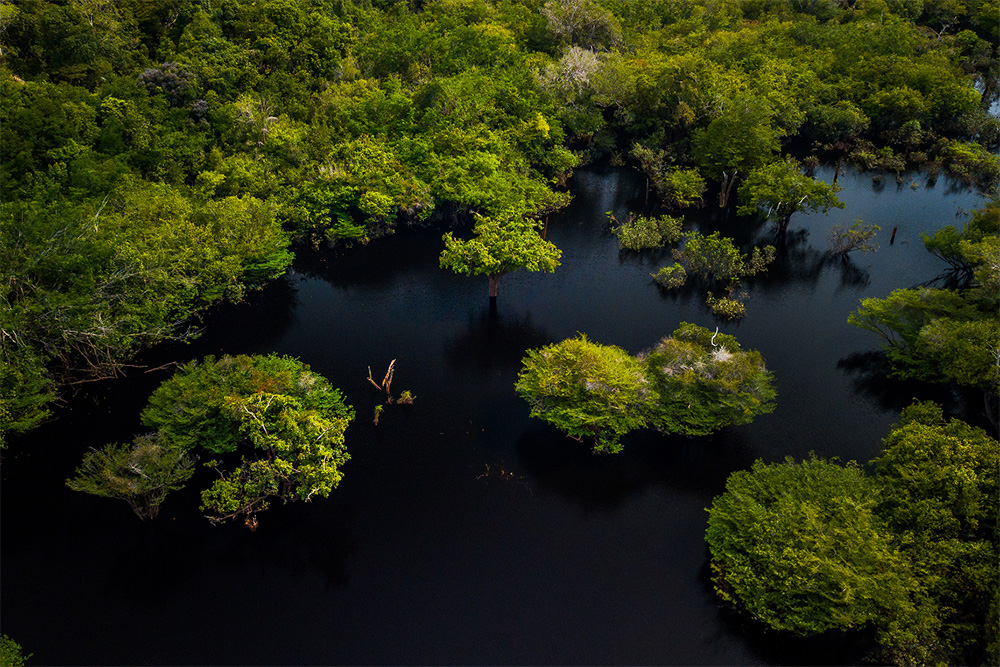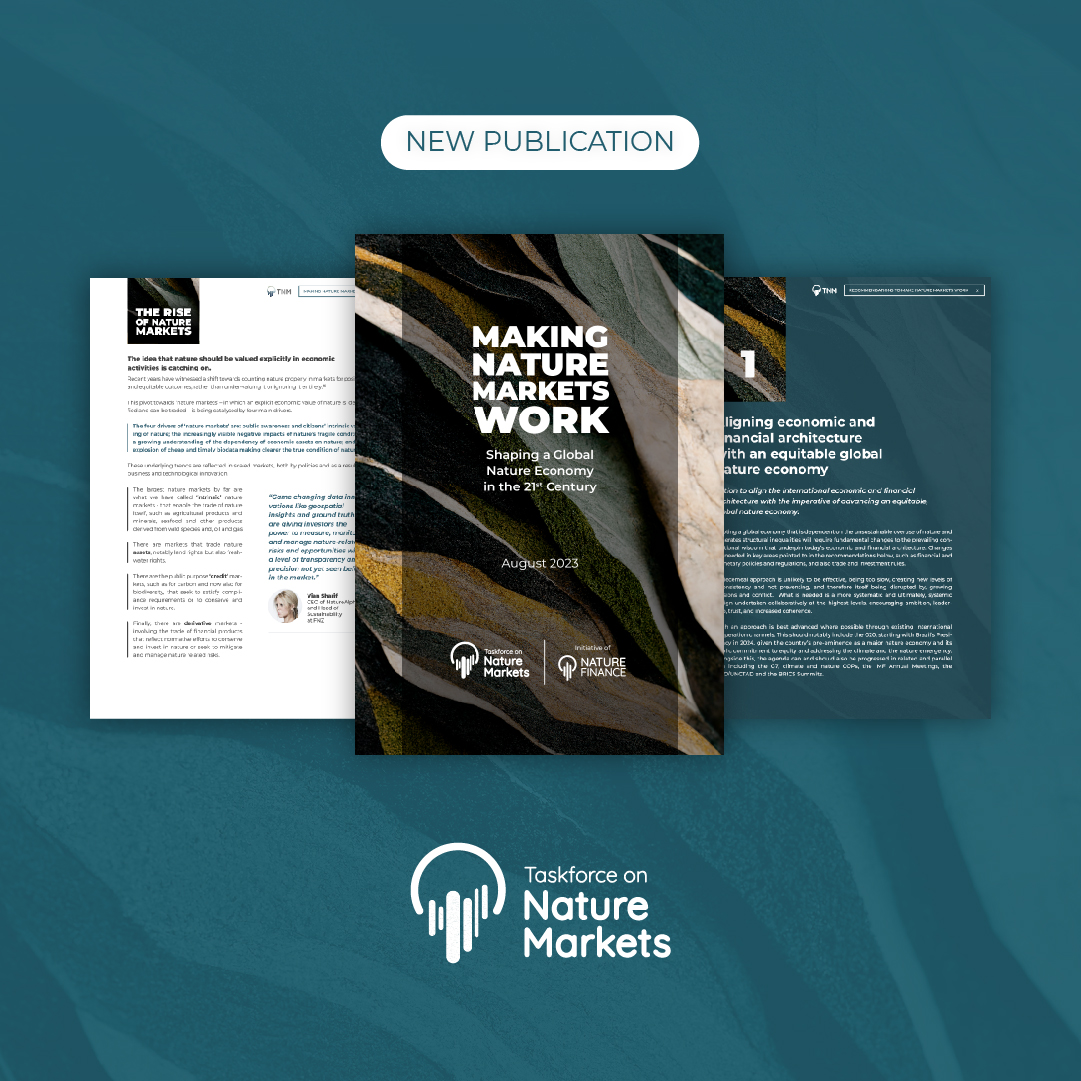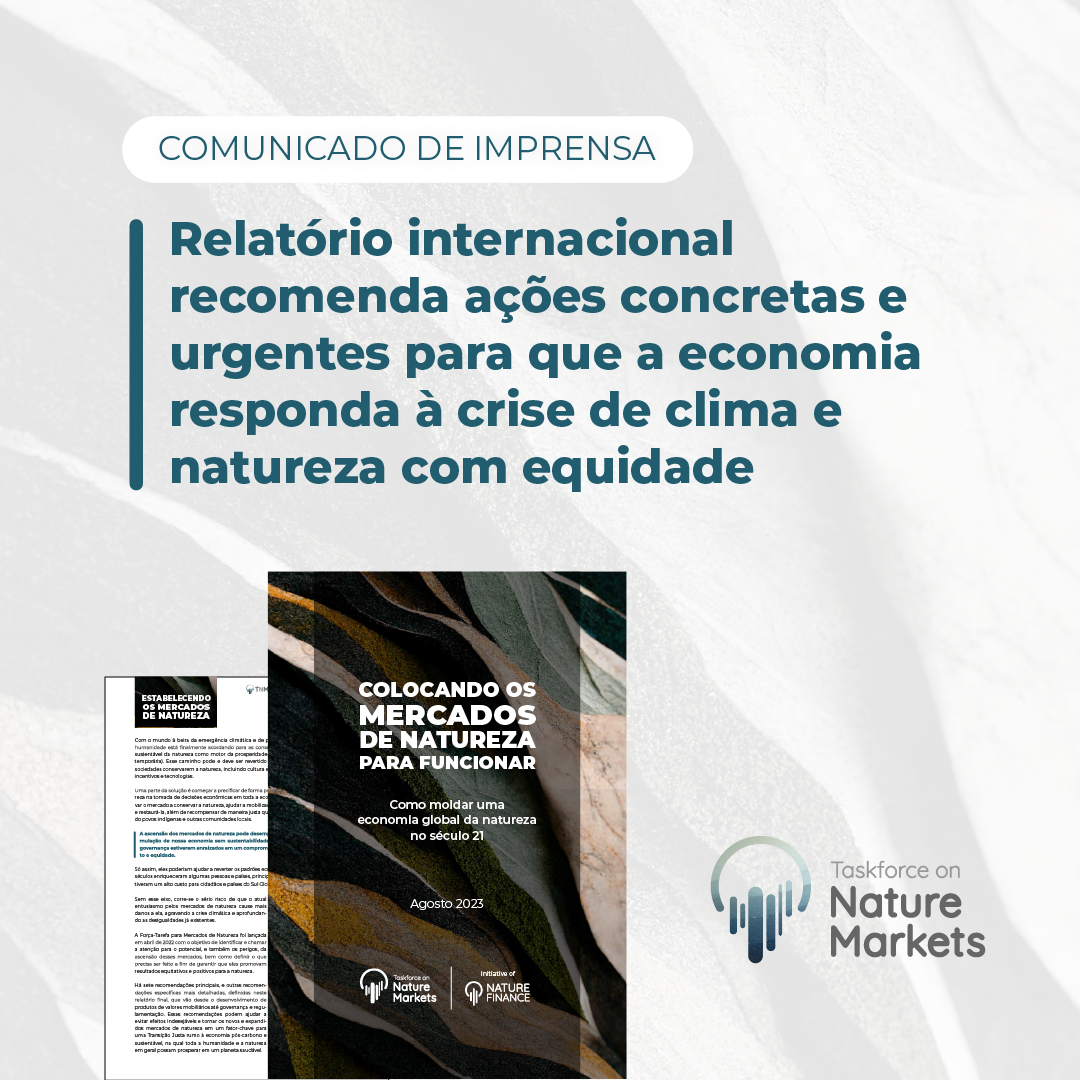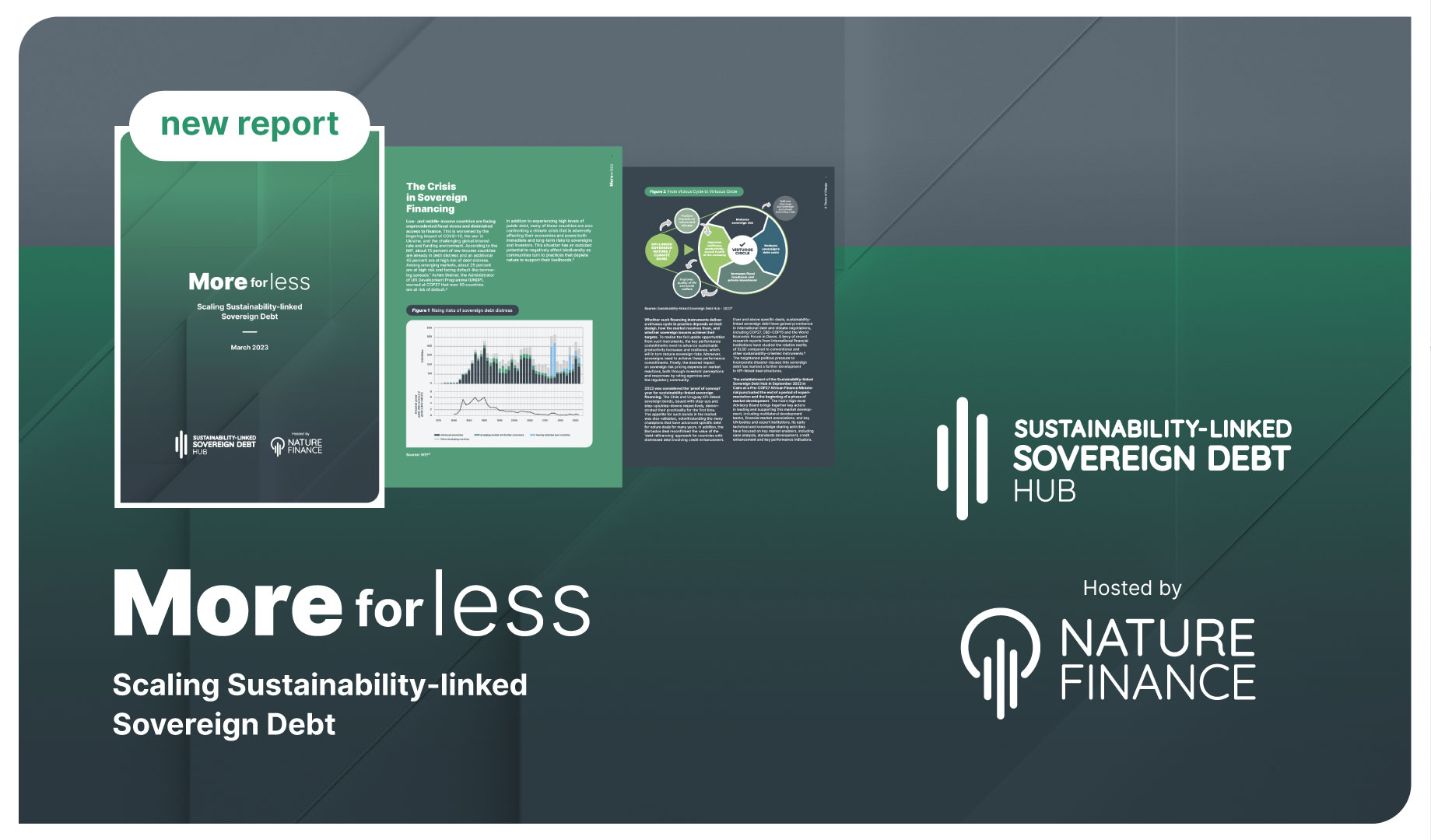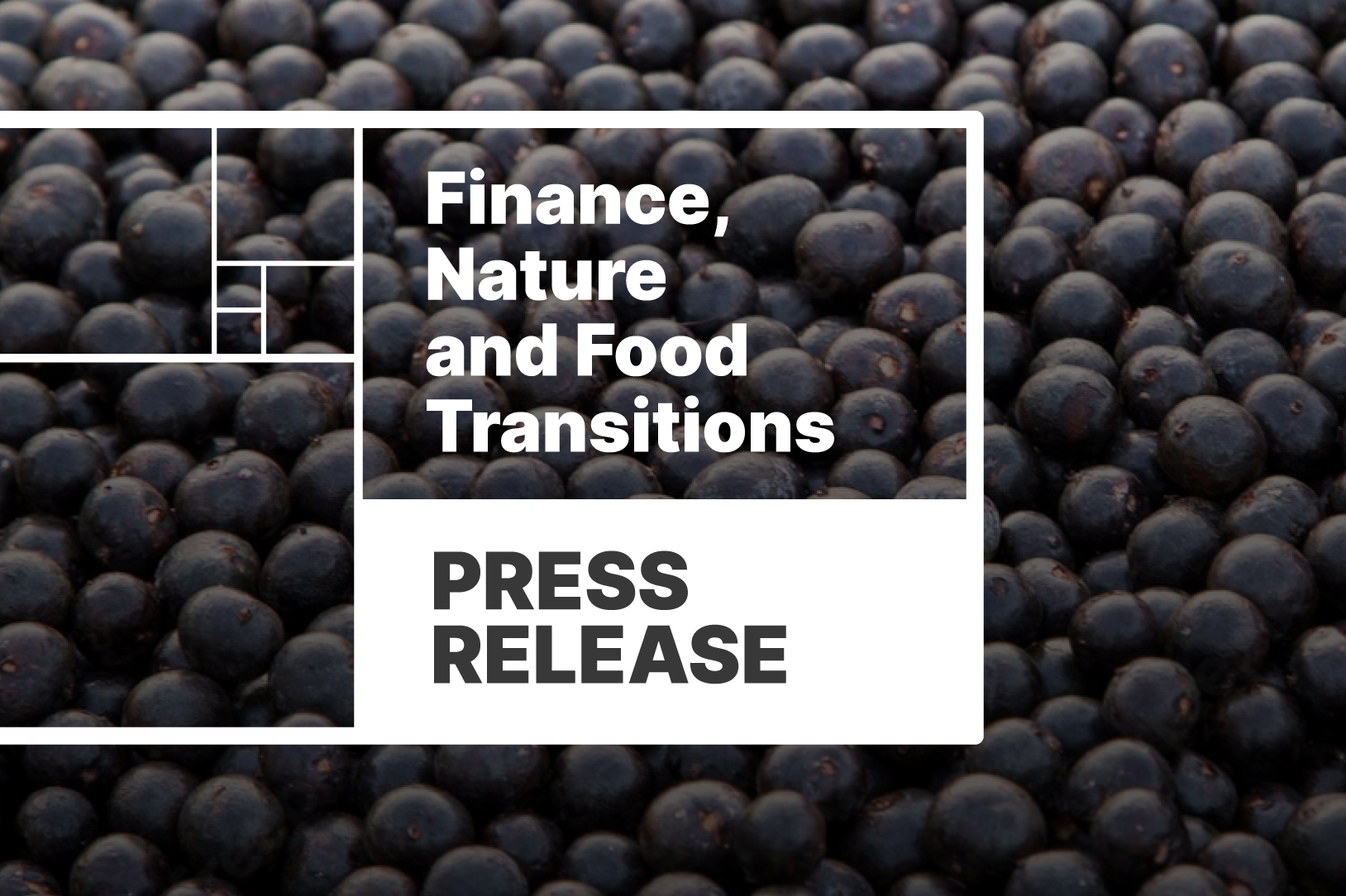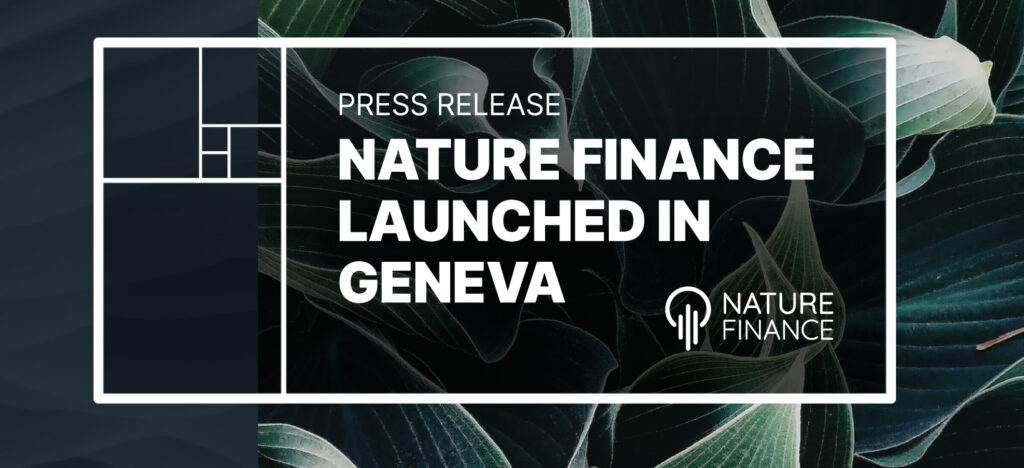
News coverage: ESG Investor Live, ESG Clarity, Business Green, Finews.ch, Tippinpoint, Neue Schweizer Zeitung, Press24, Greendustria, ESG Telegraph, Tech Investor News, Le Temps
5 October , 2022– Finance for Biodiversity relaunched today as Geneva-based NatureFinance with a showcase of projects placing nature at the heart of global finance, from sovereign debt markets to early stage investor ecosytems, risk-related metrics, food system transition and anti-money laundering.
“Nature is the foundation of our US$95 trillion global economy, yet faces unprecedented collapse, damaging efforts to address climate goals. Aligning global finance with a thriving, regenerated nature is a pre-condition for sustainable development.”
Dr Simon Zadek, Executive Director of NatureFinance (formerly Finance for Biodiversity).
“Tackling climate change and reversing nature’s endangered state needs a reset of the nexus between nature and finance in shaping tomorrow’s businesses and economies and the distribution of their economic benefits.”
Against this backdrop. NatureFinance was officially launched in Geneva today, at the annual Building Bridges Sustainable Finance Summit.
NatureFinance will take forward the work of Finance for Biodiversity (F4B), which has helped to catlyze action on how investors count nature-related risks, natural capital being valued in sovereign debt markets, and broaden nature crime’s visibility to the financial crimes community.
Financial institutions have started paying attention to their alignment with the Paris Agreement’s targets on climate change but nature remains immaterial in most financial decision-making.
NatureFinance, recognising the inter-linked challenge of soverign debt distress, climate and nature, and the need to channel investment into the just transition, is hosting the Sustainability-linked Sovereign Debt Hub, recently launched in Cairo at the Pre-COP27 African Finance Ministerial, supported by numerous development finance institutions and key investor groups.
NatureFinance today announced a Catalytic Investment Facility that will itself invest, and crowd in other investments in early stage businesses that have the potential to shape tomorrow’s equitable, nature positive markets. With seed funding from the Mava Foundation, a philanthropic foundation which invests in people and nature to support nature conservation, the Facility is scheduled to rollout in 2023.
“Successful catalytic investments will enlarge the availability of investable nature positive ventures and, in doing so, contribute to dampening investor interest in ventures that are not nature positive.”
Andre Hoffmann, President, MAVA Foundation; Vice Chairman, Roche
NatureFinance’s keystone role in developing a pipeline of nature positive businesses will be further enhanced by the forthcoming launch of a Nature Investor Circle that will convene, inform and shape collaborative action of early stage investors in nature positive businesses, and its on-going collaboration with the Earthshot Prize Foundation, designed to find game-changing solutions to our greatest environmental challenges.
Transforming the nature finance nexus requires data that bridges the worlds of science and markets. In addition to its support of the Taskforce on Nature-related Financial Disclosure (TFND), NatureFinance is proud to announce the Biodiversity Index Partnership (BIP), a partnership between NatureFinance and SEED, a non-profit initiative of the Crowther Lab at ETH Zurich, to advance market adoption of a world class biodiversity index designed to capture a much fuller range of the true value of biodiversity.
“We cannot continue to single out individual ‘useful’ elements of biodiversity over the integrity of the whole system.”
Alexa Firmenich, Co-director of SEED
“SEED’s Index will be able to quantify the full extent of genetic, species and ecosystem biocomplexity across scales. This is game changing for policy and financial mechanisms to incentivize nature positive outcomes”.
Advancing the need for purposeful, effectively governed nature markets, NatureFinance will continue to support the ground-breaking Taskforce on Nature Markets, with its focus on improving the governance of biodiversity credit markets and transparency of soft commodity markets at a time of escalating food prices. This work exends to the design of public policy to support climate and nature positive outcomes for investors in food systems.
Global nature markets, including voluntary carbon credits, conservation and soft commodities, already produce and trade more than US$7 trillion worth of goods and services annually, equivalent tothe 3rd largest economy after the US and China, according to a recent Taskforce paper.
NatureFinance’s mission to “align global finance with equitable nature outcomes” recognises that resetting the nature finance nexus is as much about people as well as the planet, including indigenous peoples and local communities. This is reflected in all its work, notably on nature crimes and the governance of nature markets.
“Our efforts to protect our lands, promote sustainable development and expose nature crimes has lead to us living under death threats, constant harassment and prejudice. Financial institutions and governments must promote an inclusive investment environment where forest communities and indigenous peoples can participate in a sustainable, just and prosperous future sharing their culture and developing new projects.”
Neidinha Bandeira, Co-founder and Leader of Kandidé Ethno-Environmental Defense Association.
“Nature markets are a bridge to a total shift in our economic system. We need to start by placing a value on nature within our current financial and economic architecture but can’t stop at that. A real transition requires not only financing change through low carbon and nature-based solutions but changing our financial and economic systems to truly service people, planet and prosperity at the same time.”
SANDRINE DIXON-DECLÈVE, TASKFORCE ON NATURE MARKETS MEMBER; CO-PRESIDENT, CLUB OF ROME said:
Resetting the nature finance nexus goes to the core of building an inclusive, sustainable world”, explains Dr Simon Zadek, Executive Director of NatureFinance, “we believe that Geneva and more broadly Switzerland offers a unique international ecosystem offinancial, corporate, technological, policy and civil actors to enable it to become a global hub of excellence in nature finance.”
In welcoming NatureFinance to Geneva, Fabienne Fischer, Geneva State Councillor, noted the Canton’s commitment to being a leading player in the emerging nature-finance field.
“Nature finance is a more recent area of focus, but it is emerging and growing very rapidly. In this context, I think the establishment of NatureFinance in Geneva is a significant opportunity to mainstream the taking into account of nature risk at a faster pace. The stakes are incredibly high and there is no time to lose.”
ENDS
Notes to editor:
NatureFinance website : www.naturefinance.net
NatureFinance launch livestream: https://www.naturefinance.net/#launch
For more information, or to speak with NatureFinance please contact:
Ceandra Faria, Head of Communications, NatureFinance
Tel. +33664085596, ceandra.faria@naturefinance.net
About NatureFinance
NatureFinance is a Geneva-based, international not-for-profit dedicated to aligning global finance with equitable, nature positive outcomes and thereby accelerating climate goals and a just transition to sustainable development. Its work spans initiatives that are building and using biodiversity data to better manage nature related risks, developing purposeful nature markets, advancing financial innovations including in soverign debt markets, strengthening nature related liabilities and citizen action on nature.
Key Data Points:
- Record number of approximately 1 million animal and plant species currently under threat of extinction. (IPBES 2022)
- Logging, mining and coastal development have altered or damaged about 75% of the land-based environment and about 66% of the marine environment. (IPBES 2022)
- Populations of vertebrates have declined by 68% since 1970. (WWF 2020)
- Humans or the livestock on which we depend for food make up 96% of the biomass of mammals on Earth. (PNAS, 2018)
- Environmental crime is in the top five most profitable global criminal enterprises, generating up to US$281 billion annually (FATF 2021)
- ‘Nature markets’ (i.e. those markets that explicitly value and trade nature) have been valued at US$ 7 trillion, equivalent to 8.6% of global GDP. (TNM 2022)
- Soft commodities market value is concentrated in livestock and dairy production, with animal-based production worth US$2 trillion, making up 44% of the market value. (TNM 2022)
- Nature-related insurance products accrue US$36 to US$44 billion in premiums per year, and demand is growing as climate risks increase (TNM 2022)
- Nature’s decline, at current rates, includes the loss of 46 million hectares of wilderness by 2030. Implications for agricultural yields, the fisheries sector, industries dependent on timber and carbon sequestration lead to a net economic cost in 2030 of up to US$225 billion. (World Bank, 2021)
- When climate, nature and public health impacts are included – the annual negative externalities of the US$8 trillion a year global food system are estimated at US$12 trillion a year. In a true-cost world, this equates to bankruptcy. (FOLU 2019)
- The world’s first biodiversity adjusted sovereign credit ratings found that under a scenario of partial nature collapse the debt-to-GDP ratio could rise steeply for developing countries such as Bangladesh (15 % points), Nigeria (13 % points), Indonesia (11 % points) and Brazil (7 % points) (NatureFinance 2022)
- Global debt has surpassed US$300 trillion in 2021, with 80% of new debt burden in 2021 coming from emerging markets, where total debt is approaching US$100 trillion. (IIF)
- Our US$95 trillion global economy is 100% dependent on nature: from our food, water, air, homes and mobile phones to the technologies we deploy and our efforts to manage climate change. (TNM 2022)
